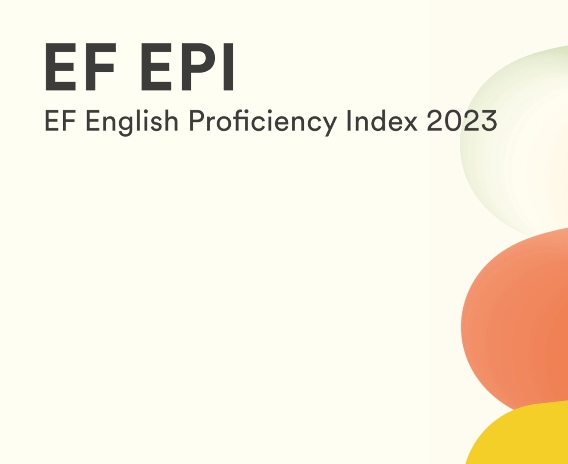Education
When discussing the development of the English language or world language in lower-income developing nations, these languages have a tricky history. For example, certain emerging countries label English as their national language when most of their population speaks something else. There may also be contempt or disregard for English or world languages due to a country’s history with colonialism. Despite this, many governments and organizations advocate for implementing English or other international languages in their education curriculum for various reasons such as employability, international mobility, development opportunities, and neutrality. These four roles outline how people could ideally use English to help developing nations, however, some have widely debated the effectiveness of teaching English in other nations and its relation to development arguing that it may cause strife within a nation, and halt economic growth. With these various perspectives, let us give you our analysis of the motion:
This house believes that developing countries should drop local languages in favor of a world language as the primary medium of instruction in schools.
This motion encourages debaters to think about whether it is essential to implement English and other popular world languages in a nation's curriculum and how it helps a country's development in the long run. Let us know your thoughts on this!
Status Quo: The Use of World Languages in Developing Countries
The intentions behind teaching English or other world languages in lower-income countries are usually positive. In 2011, the British Council identified four benefits of the English language including as mentioned previously in the beginning of the article. However, it has been proven countless times that it is rarely that simple. The reality in many developing nations, however, is that learning world languages or English can be difficult and come with its own set of challenges. Take Sierra Leone as an example; in a piece written by a Sierra Leonean author, she discussed how despite schools teaching English, it is a burden on many citizens especially since many of the nation’s population speak Krio. She also wrote about how many children struggle to learn English due to its usage in classrooms and that jobs often go to unqualified people because they can speak English. Despite this, there are also some observed benefits for English or other world languages in developing nations such as increasing an individual’s earnings and increasing tourism opportunities in countries. For example, in our own country, Malaysia, where many people have had the opportunity to further their studies and migrate overseas for jobs and our increasing tourism rates due to the implementation of English and other foreign languages in our school system and day-to-day life by the government.
In this debate, both sides delve into the advantages and disadvantages of implementing a world language as opposed to using local languages as the main mediums of education in terms of how it affects the quality of education and socioeconomic effects.
Proponents state that in the world, the barrier of language stands as a mile-high wall between people and opportunities. It is a reality that systematically blocks people from prosperity and upliftment by the conditions of birth because individuals in developing countries are isolated in communities that are homogenous to their language and are deprived of the choice to speak and engage beyond a predestined bubble. Proponents advocate for the adoption of a language that is spoken by the majority of people (likely English but open to other languages) which would be mandated by schools across the board (ie; Singapore education/language system) and that people can still speak their native language at home. They emphasize that the change on their side is about whether more accessible institutions adopt these international language curricula and whether the majority of people in these nations can learn from them (as opposed to it only being implemented in international or private schools in developing nations).
Opponents state that developing nations currently look a lot more like Vietnam or China; countries that have gone ahead with the imposition of a national language and been able to develop and pull the poorest of people out of rural areas and into areas where they can gain some form of education and that local languages are not some form of mile high barrier. They argue that Proposition’s world doesn’t exactly look like Singapore, because Singapore is a vast minority and had a bunch of other good stuff going for it, instead, it looks more like India or Sri Lanka through an attempt to create unity by engaging in foreign language impositions has created a stark divide between the urban and rural communities, thus locking the vast majority of people out of access of education at all. On the contrary, what they want to do to their education system is that they take the most widely spoken language in the nation and make it the primary medium of education, it is what non-language subjects are taught based on. However, students can learn world language as an additional subject in the same way most schools already mandate you study a foreign language.
#1 Who provides better quality education with more resources?
Proponents argue that in the Opposition’s world, schools that operate in the local language have limited resources available as compared to schools that implemented a world language as their medium of education. This often means that schools do not have standardized materials in the local language and it is usually up to the school community and the teachers to produce the syllabus. They state that most children will not have access to things like textbooks because it is hard to mass-produce textbooks and educational material in a developing nation. They believe in the Proposition’s side, these massive world languages already solve those costs because all the resources already exist and are readily available for students to learn from. In addition to that, they believe schools in their world will have more external funding thus actually reducing the disparity between urban and rural schools. In Proposition’s world, they say that schools can partner with international universities (i.e. Vin University partners with Cornell) because they have a common language they can work through and similar educational paradigms. Because of these two main reasons, they believe that their side can provide better quality education without imposing as much burden on students and parents alike.
Opponents say that on their side, they provide better quality education because they think that children in a given country should learn in a language that they already have some familiarity with as opposed to a new language. Oppositions argue that in developing nations, educational resources are given based on merit because the education ministry and government want to get positive incentives among schools and the preference for performance in public exams becomes something numerical and can very easily be used to justify trade-offs. The problem then is richer urban students have more access to world languages because they historically have been more privileged because of colonialism in these areas. Opposition believes this creates a vicious cycle where the already privileged students get most of the government budgets funneled into their school, thus continuing to get better and better but rural area students are neglected.
In opposition’s world, rural students can easily access local language and local resources more than they can access a foreign language and foreign resources because there will always be people around them that speak that local language as opposed to importing foreign teachers from urban areas. Opposition believes they give a more usable and functional education system and that they do not structurally discriminate because everyone can access resources equally as opposed to just wealthy urban students.
#2 Which side makes education and job opportunities more accessible?
Proponents propose that access to schools is highly likely to be symmetrical on both sides of the house. However, they believe that the opposition's side could not prove a significant margin therefore students in opposition’s world lose more access to school. The reason for this is that on the opposition's side, they think parents are more likely to pull their children out of school because parents will feel as though they can teach their children at home through the local language and do not see the need to send them to school. In terms of economic benefits, proposition believes that since they provide a better quality of education, the citizens of developing nations will have more job opportunities. In the propositions world, more lucrative careers come into the area on their side. Big companies would be more willing to invest in businesses in developing nations because there is an employment basis and labor force that foreign-owned companies can access. After all, the citizens speak a world language. On top of that, proponents state that learning English or another world language is the greatest employable skill a person could have as it increases individual social mobility because they believe when a person only knows the language the locale speaks, they are unable to get out of your hometown and become unemployable not only to other countries but also to major city centers in your nation which have been dominated by foreign-owned companies. They state that learning English removes this barrier, thus empowering individuals to move within their capacity to search for opportunities whether in the country or abroad much more easily because they can understand and learn more job skills.
Opponents think that on their side access to education is much bigger because, on proposition's side, students are being forced to learn a language that these students have no familiarity with. On the opposition's side, students of the minority are learning the majority language which is already prevalent within the country. They believe that on their side, the barrier of learning the majority language is much easier to overcome than learning a new foreign language because, on proposition's side, poorer people are completely locked out of access to learn a foreign language from scratch. They mentioned several other reasons such as a time lag in students and a greater financial burden on parents as well. On the comparison, they state that the majority local language is far more accessible as it is already spoken by people, even minorities as compared to trying to access the internet or foreign books. Even if people don’t know or understand the majority language, because there are linguistic similarities it is much easier to learn similar languages (i.e. Hindi and Sinhalese). From an economic perspective, they state that it is much easier to access and complete school on their side and they believe that companies are more willing to give people jobs when they have a complete education and speak limited English as compared to not finishing your education but being able to speak fluent English thus more people can get jobs.
Burden of Proofs
After understanding potential argumentation points from both ends, it’s your turn to evaluate whether each side has provided sufficient proof and analysis to support their stance.
Proponents should prove why implementing a world language as the main medium in a developing nation's education system is better for the country in the long run.
Opponents should prove why implementing a local majority language provides people with more access to opportunities and quality education + reduces class divides
Do you think implementing a world language like English is better for developing nations? or will it reduce their access to jobs and quality education?
End of the line!
Here's a document that summarises all you need to know about both sides' arguments regarding the usage of local and world languages in developing nations.
Implementing world languages and their benefits requires extensive research to understand and tackle, so we’ve linked some relevant resources below to get you started!
- The impact of English in developing nations

- The importance of citizens of a country mastering English

Lastly, hats off to Team USA and Team Sri Lanka for the wonderful debate!
Author: Ayla Georgia (@aylageorgia_ on Instagram)



